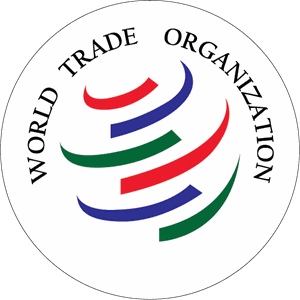BWI on proposed TRIPS waiver on COVID-19 vaccines and medicines
 The Building and Woodworkers’ International (BWI), a global union federation with 12 million members from 351 affiliated trade unions in 127 countries, would like to express its serious concern with the lack of progress on the proposal supported by more than 100 countries for a temporary waiver of certain provisions of the TRIPS Agreement of the World Trade Organisation (WTO) for Covid 19-related vaccines, diagnostics, therapeutics, medicines, and medical implements.
The Building and Woodworkers’ International (BWI), a global union federation with 12 million members from 351 affiliated trade unions in 127 countries, would like to express its serious concern with the lack of progress on the proposal supported by more than 100 countries for a temporary waiver of certain provisions of the TRIPS Agreement of the World Trade Organisation (WTO) for Covid 19-related vaccines, diagnostics, therapeutics, medicines, and medical implements.
This widely supported TRIPS Waiver proposal also seeks to suspend temporarily the enforcement of patents, trademarks, and trade secrets protection so as to allow countries to scale up the production and export of these Covid-19 vaccines and other related medicines and medical implements.
We are at a loss for words as we witness Big Pharma, represented by trade officials of the richest countries, unequivocally prioritize profits over lives and health, especially of people in least developed and developing countries.
Worse, this month we learned about a leaked text from discussions between the EU, US India and South Africa provisions of which are even worse than those in the existing TRIPS Agreement. Our sisters and brothers who are health rights advocates characterise it as “worse done nothing” and an “abomination”. The parties are still consulting, according to the WTO Director General.Incidentally, the leaked text is erroneously referred to as the “Quad Text”, since the same is being discussed among the EU, the US, South Africa, and India, even as they have not all signed on to it.
Among the flaws in this month’s leaked text are the following:
- The waiver applies to vaccines only when in fact at the moment rapid, affordable, and regular testing and treatments are just as crucial
- The waiver is supposed to extend to the production and distribution of COVID-19 diagnostics and therapeutics no later six months from the effectivity of the agreement – but only should the members of the WTO agree, which will surely be delayed based on the foot-dragging that has been going on since the original India-South Africa proposal was submitted in October 2020.
- The so-called “Quad discussions” are hardly inclusive since only India and South Africa are working for the interests of developing countries, while their two (2) counterparts represent the richest industrialised countries and Big Pharma. There are no least-developed countries in the discussions.
- The proposed agreement will be limited only to how and when countries can waive a small number of TRIPS obligations rather than encompass all relevant language in the TRIPS Agreement.
- The text largely repeats existing TRIPS flexibilities but adds TRIPS+ conditions to using them.
- It does not waive trade secret protection or other barriers to access to COVID vaccines.
- Finally, it will be effective only for 3 or 5 years but stops whenever COVID-19 is no longer a pandemic. It is unclear who would decide this and when it would occur, so this uncertainty may discourage generic companies from making the significant investments needed to use this text.
As the World Health Organization’s Director-General said recently, COVID-19 cases are still increasing globally, there is insufficient testing, ‘there are unacceptably high levels of mortality in many countries, especially where vaccination levels are low among susceptible populations’ and ‘the pandemic is not over. I repeat, the pandemic is not over.’ He called on everyone to be vaccinated and for countries to continue to test and provide care for patients.
As a virologist noted, the speed at which COVID-19 is mutating is unprecedented and surprising. Initial COVID-19 vaccines have been shown to be less effective against recent COVID-19 variants, so second-generation vaccines are being developed which are designed to be effective against more variants. Once a second-generation vaccine is has been developed, shortages are expected again as intellectual property monopolies restrict the number of companies who can make it and rich countries again buy all the available doses at first.
It is now clear that the WTO members must reject the leaked "text," and instead, throw its all-out support for the original proposal from South Africa and India, which now enjoys the support of more than 100 countries.
